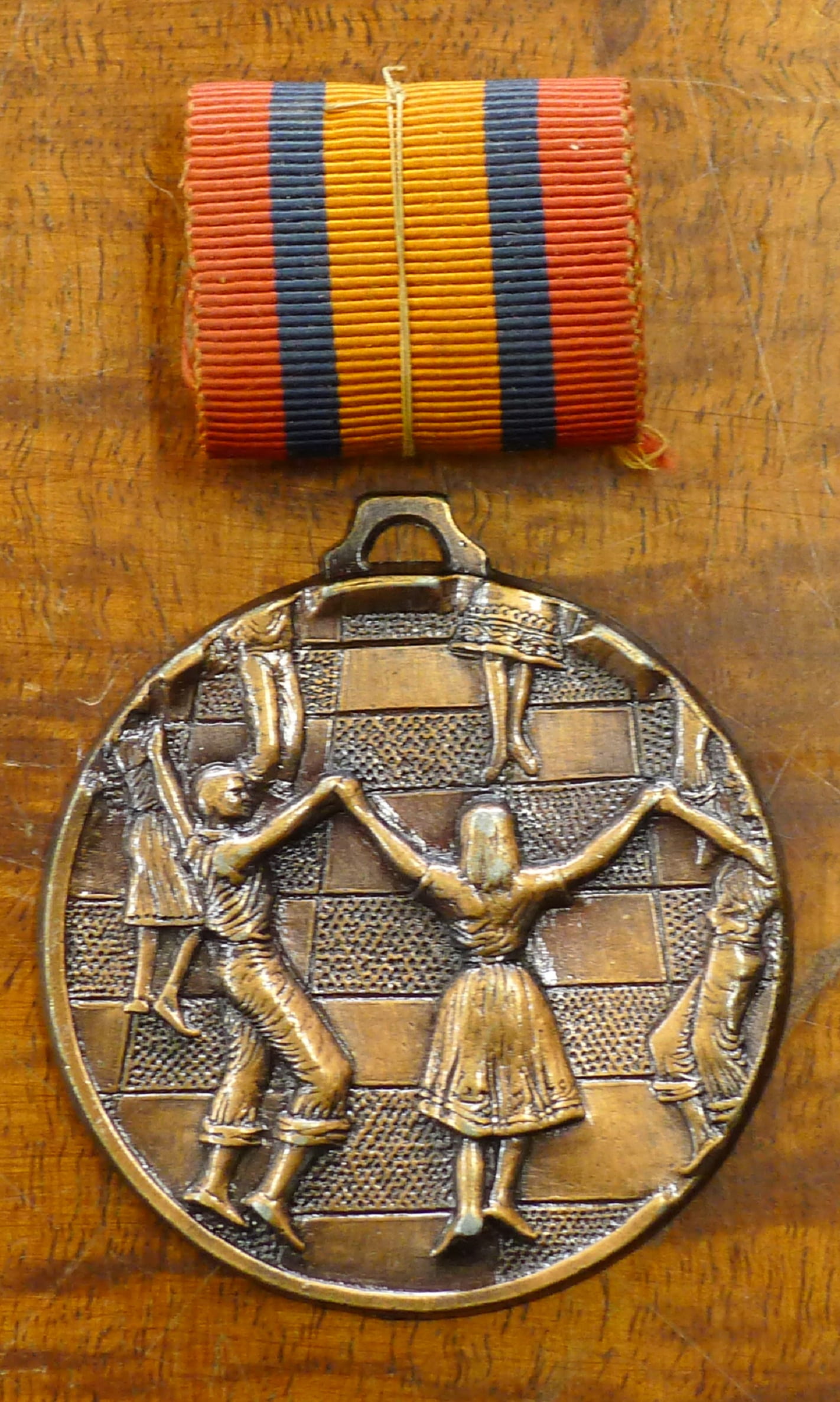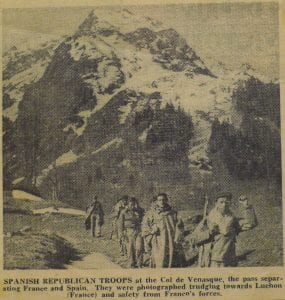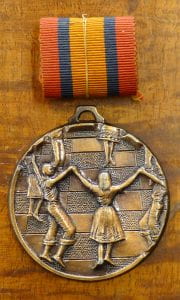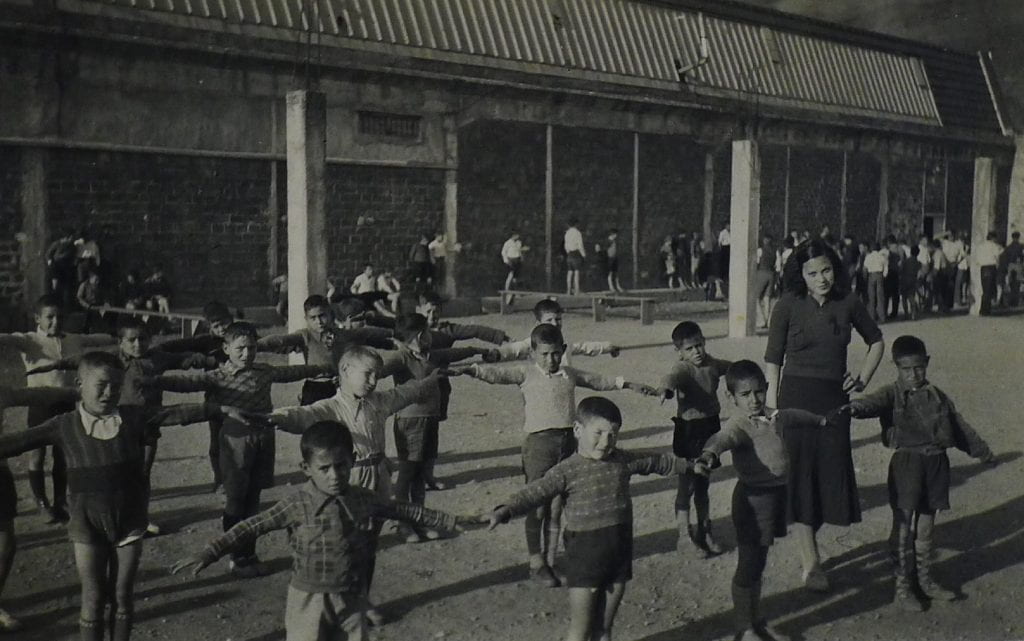
‘Salut Comarada’’ An Australian experience of the Spanish Civil War
The 17th of July marked the 80th anniversary of the beginning of the Spanish Civil War. Despite taking place on the other side of the world, a number of Australians left their homeland to join what many observers saw as a war of ideologies. War erupted after a failed military coup by Nationalist forces (later led by Francisco Franco) against the Republican Spanish Government. In August 1936 France closed its border with Spain, adhering to a non-intervention agreement to restrict materials and the movement of volunteer fighters. One method for volunteers to support their Republican comrades was to join the Brigadas Internacionales, risking imprisonment by crossing through the Pyrenees into Spain. Gathered in Carcassone, France, Australian Lloyd Edmonds (1906-1994) met fellow volunteers willing to make the challenging hike over the mountains to war beyond.

Influenced by trade unionist parents and Socialist Sunday School teacher Minnie Long, Lloyd joined the University of Melbourne Labor Club whilst studying an Arts Degree. He and his brother Phillip helped form the Teacher’s Industrial Union and Lloyd became a delegate to the Trades Hall Council. In 1935 Lloyd left Australia to study at the London School of Economics, however his studies were delayed when war was declared in Spain.
The Lloyd Edmonds Collection at the University of Melbourne Archives contains a series of letters, most to Lloyd’s father, spanning the voyage to England, his involvement in the war, and his repatriation back to Australia in 1938. Working life as a driver within an American unit of the International Brigade is portrayed alongside the cultural difficulties Lloyd faced, mixing with other volunteers from all over the world, constant illness, and trying to learn Spanish and Catalan. The letters were published in 1985 in Amirah Inglis’ Letters from Spain.

Lloyd’s covert crossing of the Pyrenees on Spain’s north eastern border is vividly detailed in a long letter home. “It was remarkable scenery. We went along the very roof of the Pyrenees for two hours. It was quite difficult too, balancing along precipices – real precipices.” He continues the tale after passing through heavily armored villages, and arriving at the Republican stronghold of Figueras. “A char-a-banc- picked us up at this village and took us to an expropriated house of some aristocrat. It was a fine modern house, with modern furniture, but now it looks quite grim. There are sandbags in every window.” (Letter to Pop, 27 May 1937, File A, Unit 1, Lloyd Edmonds Collection, University of Melbourne Archives, 1983.0137). Early correspondence illustrates the confidence that the Spanish Government would be victorious, “Everybody is behind the government. The greeting now instead of ‘Adios Senor’ is ‘Salut Comarada’. This, and the clenched fist sign of the Popular Front is universal…Feeling here is now is brimful of confidence that the fascists will soon be driven out of the country” (Letter to Miss Long, 14 June 1937, File A, Unit 1, Lloyd Edmonds Collection, University of Melbourne Archives, 1983.0137).

Officially, 70 Australian volunteers fought in Spain; Lloyd was one of the few who survived to return to Australia. In 1994, Spanish ambassador to Australia Antonio Nunez wrote to Lloyd’s wife Jean after his death, stating that “his memory will remain with us as an example of generosity and his ideal of devotion to the well-being of mankind.” (Letter to Mrs Jean Edmonds, 7 October 1994, University of Melbourne Archives, Lloyd Edmonds Collection, 2014.0016). With an empathy for the suffering of the working-class, and no doubt spurred on by the idea of fighting Fascism, Lloyd offered his generosity and devotion to the ideals that the Spanish Government attempted to maintain. By the end of March 1939, with most of the Republican army disbanded and the Spanish Government in exile in France, Franco and his Nationalist forces took Madrid and ruled Spain until his resignation as Prime Minister in 1973. He died in November 1975.
Researchers can find the full listing of the Lloyd Edmonds collection by using his name as the search term in the University of Melbourne Archives’ online catalogue.

Hello. Is it accurate that Franco rules until 1973? I have always been told it was until 1975 in November when Franco died that he ruled. Please let us know if we have it wrong. Thank you, John Cornford Family.
Thank you for your interest in the UMA blog. Franco resigned as Prime Minister in 1973, and was succeeded by Carrero Blanco. However, Franco remained as Head of State and Commander-in-Chief, although he was beset by ill health. He did indeed die November 1975.